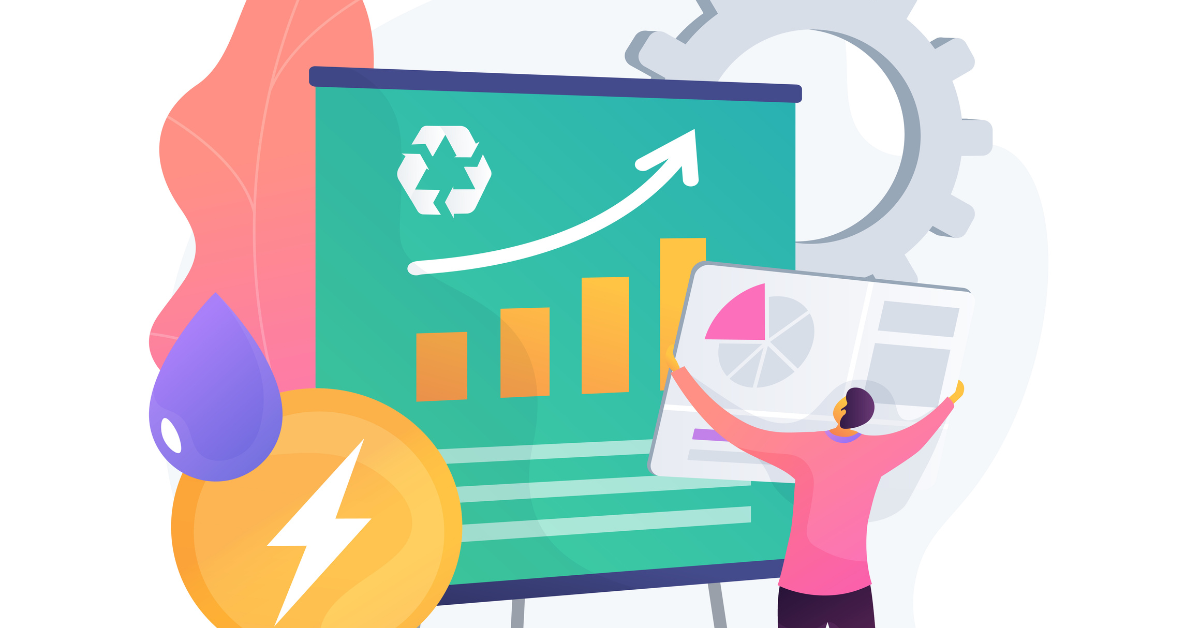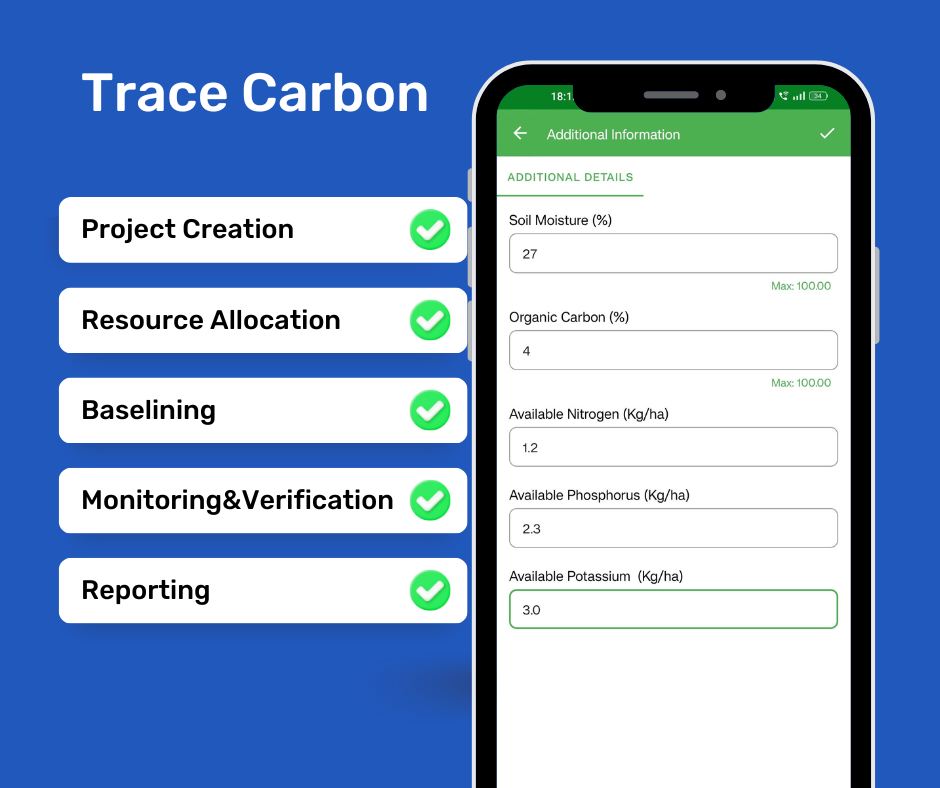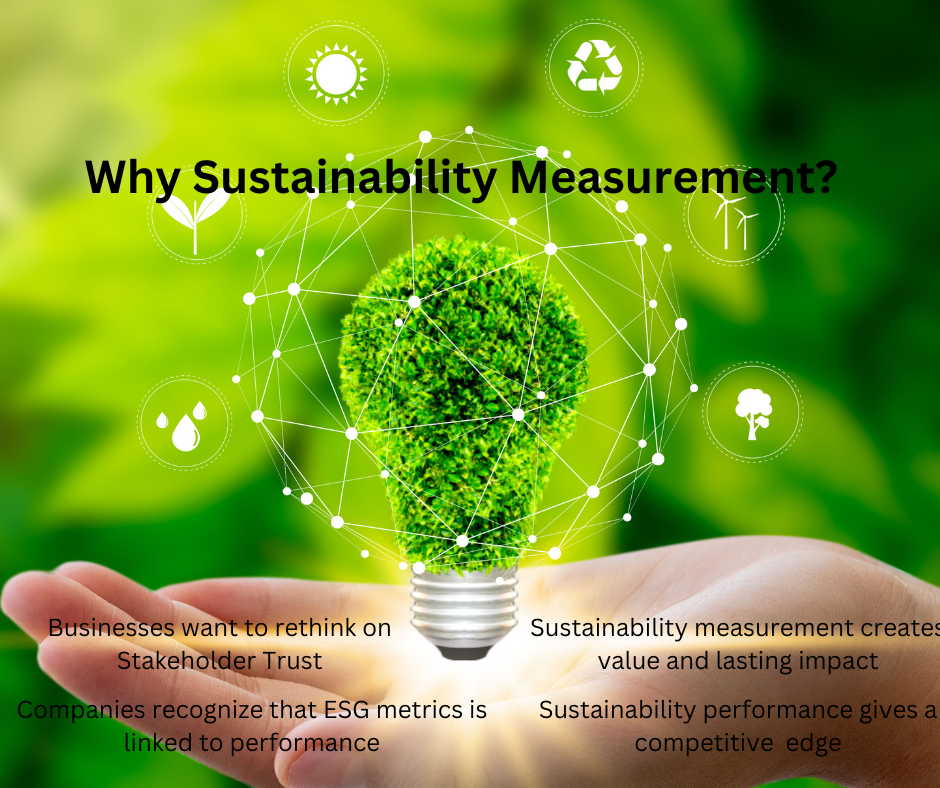Contact: +91 99725 24322 |
Menu
Menu
Quick summary: Unlock your organization's success with TraceX's powerful sustainability platform. Dive into our insightful blog to explore how this innovative solution enables businesses to track and optimize their sustainability efforts, driving environmental impact, and paving the way towards a more sustainable future

Sustainable Management platforms are becoming increasingly crucial as organizations recognize the need to address environmental and social challenges while ensuring long-term profitability. It involves integration of sustainable practices into the core strategies and operations of an organization to minimize negative impacts on the environment, society and economy.
The Global Reporting Initiative (GRI) reported that 93% of world’s largest companies now disclose their sustainability performance, hinting a growing recognition of the importance of transparency and accountability in sustainability management.
TraceX’s sustainability platform provides companies with a robust framework to track, analyse and improve their sustainability performance across various dimensions. This blog aims to shed light on how TraceX’s sustainability platform empowers companies to achieve their sustainable development goals by identifying specific targets and indicators that are relevant to their industry and operations.
According to UN, the world population is expected to reach 9.7 billion by 2050 that will place an immense pressure on global resources and ecosystems. Sustainable management practices are essential for meeting the growing demand for food, water, energy and other critical resources while minimizing environmental degradation. By adopting sustainability management, companies can effectively contribute to the preservation of natural resources, reduction of greenhouse emissions, conservation of biodiversity, promotion of social equity and increase the overall well-being.
Environment, Social and Governance (ESG) represents the three key areas of sustainability management. Environmental factors include the impact on environment such as resource consumption, emissions, pollution and climate change mitigation. Social factors address the social aspects like human rights, labour practices, community engagement and product safety. Governance factor relates to the internal policies, procedures and ethical practices that guide a company’s decision making and thereby ensure accountability.
ESG factors are crucial in sustainability management as they provide a framework for organizations to assess, measure and report their sustainability performance. Companies can take a holistic approach to sustainability by considering environmental and social factors alongside governance practices to identify risks, opportunities, improve operational efficiency, foster stakeholder trust and enhance long-term value.
The relevance of ESG lies in its ability to guide organizations towards a more comprehensive and integrated approach to sustainable practices. It encourages companies to go beyond compliance with regulations and embrace strategies that align with the global sustainability goals.
The Sustainability platform offered by TraceX provides organizations with key features for tracking and analysing a range of sustainability indicators like Soil Health, Water, Biodiversity and Carbon emissions.
The platform includes features to assess and monitor soil health indicators. It allows organizations to track soil quality parameters such as nutrient levels, pH balance, organic matter content and electrical conductivity. Analysis of this data helps organizations to make informed decisions about improving soil health, minimize soil degradation and enhance regenerative agriculture practices.
The platform enables organizations to calculate their water footprint. It provides real-time data on water usage, identify areas of high consumption and implement water conservation strategies to reduce waste and promote efficient practices. The total groundwater harvested, ground wate table and soil moisture are few of the indicators that are captured. With geography-based datasets you can determine the operational impacts on local communities.
The platform facilitates monitoring and tracking of biodiversity indicators. It helps organizations assess the impact of their activities on habitat preservation, species conservation and ecosystem services. The floral species count, faunal species count, and the soil biota helps to analyse the biodiversity in the particular region.
The platform provides comprehensive tracking and reporting capabilities for greenhouse gas emissions. It allows organizations to collect and analyze data related to emission sources such as energy usage, fertilizer usage, land-use, manufacturing processes and transportation. Trace Carbon is a carbon accounting module that helps organizations to identify hotspots, set reduction targets and implement carbon reduction initiatives to mitigate their environmental impact.
These features enable companies to make data driven decisions, optimize resource usage, reduce environmental footprint and contribute to the overall sustainability of their operations.
TraceX Sustainability solution is a powerful and versatile platform that enables organizations to effectively manage and optimize their sustainability initiatives. The product empowers businesses to drive positive environmental and social change while achieving the sustainable development goals.
Sustainability projects are created tailored to the organization’s specific goals and requirements. The users can define the project scope, set targets and outline strategies for restoration and conservation.
Project creation involves selecting the appropriate methodologies and standards for measuring the sustainability indicators. By adhering to recognized methodologies and standards, organizations ensure credibility, consistency and comparability in their carbon accounting and offset initiatives.
Allocation and management of resources to support sustainable practices and achieve the sustainability development goals is critical in sustainability projects.
Farmers are an invaluable resource in sustainability projects related to soil, water and biodiversity. Their knowledge, active involvement, responsible management of resources, community engagement and economic viability contribute to the success of these long-term sustainability projects. This may involve onboarding the farmers associated with the FPOs, cooperatives or blocs and provide them the required training and incentives to adopt climate smart practices is crucial for success of any sustainability project. It is essential to do farmer profiling to capture the various sustainability metrics around the farmer’s socio-economic conditions for a project.
Farm plotting is conducted to strategically allocate resources and implement targeted practices that maximize the potential for sustainable farming practices. Different plots may have varying characteristics and suitability for specific activities. Geo-tagging these parcels of lands helps in baselining and monitoring of the sustainability metrics.
This feature streamlines the process of distributing resources and promotes equitable access to support, enabling optimal utilization for maximum impact.
Baselining is a fundamental aspect of any sustainability project. It involves establishing a starting point or a reference against which future changes and progress can be measured.
Soil baselining involves assessing the current condition and health of soil in terms of the soil organic carbon, nutrient levels, pH, compaction and microbial activity. This baseline measurement provides a benchmark to evaluate the effectiveness of soil management practices over time.
Water baselining focuses on understanding the quality and availability of water resources. It involves measuring parameters such as water quality – pH, nutrient levels and turbidity, water flow rates and groundwater levels and water-use efficiency. This baseline helps to assess the existing water related challenges.
Biodiversity baselining involves documenting the species present, their abundance and interactions within the ecosystem. This baseline establishes a reference point to measure changes in biodiversity over time.
Baselining requires collecting and analysing relevant data and this data capture is done using user- friendly mobile apps. The existing data can be imported or collected by integrating with existing systems, thereby enabling efficient data management.
Monitoring and verification is essential to track progress and outcomes of sustainability projects. They provide a means to evaluate the effectiveness of interventions, identify any deviations from desired targets and make informed decisions about adaptive strategies. Ensuring the accuracy and reliability of collected data contributes to the credibility and accountability of soil, water and biodiversity management practices along with socio-economic indicators, helping to achieve the sustainable outcomes.
TraceX’s platform provides robust monitoring and verification capabilities, allowing organizations to track their practices in real-time. This involves the continuous tracking of relevant metrics. Through advanced data collection methods, sensors and integration with existing systems, the solution captures accurate information on the various parameters. The real-time monitoring enables organizations to detect deviations from targets and evaluate the effectiveness of mitigation measures. Data validation and quality assurance processes ensure that collected data is complete, consistent, accurate and aligned with established standards and protocols. Verification ensures accuracy and credibility of reported data, providing transparency among the stakeholders.
Reporting enables organizations to communicate their environmental performance effectively, demonstrate compliance, track progress and engage stakeholders in the sustainability journey. This could include internal teams, senior management, investors, customers and regulatory bodies. Reporting involves visualization and presentation of data in a clear and understandable manner. Dashboards offer customizable views, allowing users to tailor the displayed information to their specific needs and priorities.
Reporting in sustainability projects helps bridge the gap between data collection and decision making, fostering transparency, accountability and informed actions for protection and conservation of soil, water and biodiversity and the socio-economic conditions.
The platform leverages the power of blockchain, IoT and remote sensing technologies to collect real-time data on the environmental parameters. The capture of granular level data provides a holistic view of sustainability performance. The platform integrates data from diverse sources to enable comprehensive analysis. It provides seamless integration with existing ERP systems as well as external sources like weather databases and satellite imagery. By integrating data from these sources, the platform provides a unified view of sustainability indicators allowing organizations to conduct in depth analysis and gain invaluable insights. This data driven approach enhances decision making process and supports implementation of targeted sustainability strategies.


TraceX Sustainability platform offers several benefits to Enterprises, Export houses and Carbon Project Developers.
Enterprises
Export Houses
Carbon project developers
TraceX’s Sustainability platform establishes itself as a distinctive solution in today’s markets.
These factors position Trace carbon as a distinct and trusted solution attracting customers and stakeholders who prioritize reliability, accountability and environmental impact.
Sustainability platforms capture operational and supplier data in one central, secure, cloud-based system that connects strategy, automates reporting and simplifies stakeholder engagement. TraceX has been enabling businesses to accurately and transparently calculate their sustainability impact using their software platform, making it easier to comply with the regulations and build resilience for the future.
